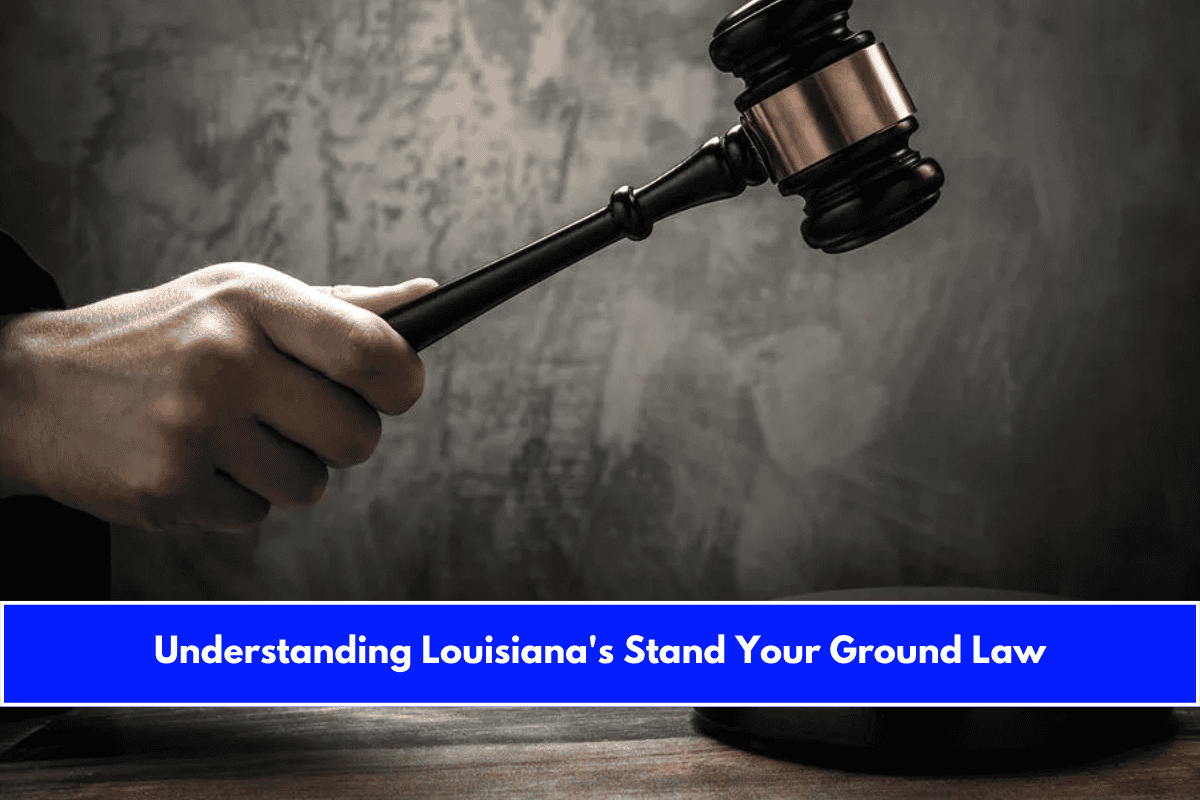Louisiana’s Stand Your Ground law is a key part of the state’s self-defense statutes, shaping when and how individuals may use force to protect themselves without a duty to retreat. Here’s a comprehensive look at what the law covers, its requirements, and its limitations.
What Is the Stand Your Ground Law in Louisiana?
Louisiana’s Stand Your Ground law removes the “duty to retreat” from any place a person has a legal right to be. This means that if you are lawfully present in your home, vehicle, workplace, or any public space, you are not required to attempt escape before using force-including deadly force-to defend yourself against an imminent threat.
Key Provisions and Where the Law Applies
- No Duty to Retreat: You do not have to retreat before using force if you are lawfully present at the location where the threat occurs.
- Locations Covered: The law applies in your home, vehicle, place of business, or any public area where you have a legal right to be.
- Castle Doctrine: This doctrine is explicitly included, giving special protection to defensive actions inside your home, business, or vehicle.
Requirements for Justifiable Self-Defense
To claim protection under Louisiana’s Stand Your Ground law, these conditions must be met:
- Imminent Threat: There must be an immediate threat of death or great bodily harm to yourself or others.
- Reasonable Belief: You must reasonably believe that using force is necessary to prevent harm. This belief is judged by what a reasonable person would do in similar circumstances.
- Proportional Response: The force used must be proportional to the threat. Excessive or unreasonable force may not be protected under the law.
- No Provocation: Generally, you cannot claim Stand Your Ground protection if you were the aggressor or provoked the confrontation, unless you withdrew and communicated your intent to do so.
- No Unlawful Activity: The law does not protect individuals who are engaged in illegal acts at the time of the incident-for example, committing a crime or using force during a drug deal.
Legal Limitations and Considerations
- Not a License for Violence: The law does not justify force if the threat has ended (e.g., if the attacker is fleeing) or if you pursue the aggressor after the threat is over.
- Against Law Enforcement: Using Stand Your Ground as a defense against police officers is complex and generally not protected if you are being lawfully arrested or engaged in illegal activity.
- Burden of Proof: If you claim self-defense, you must demonstrate that your belief in the need to use force was reasonable and that the threat was imminent.
Summary Table
| Principle | Louisiana Stand Your Ground Law |
|---|---|
| Duty to Retreat | No, if lawfully present |
| Where It Applies | Home, vehicle, business, any place you have a right to be |
| Justification Required | Reasonable belief of imminent danger |
| Proportionality | Force must match the level of threat |
| Castle Doctrine | Explicitly included |
| Limitations | Not valid if engaged in unlawful activity or as the initial aggressor |
Louisiana’s Stand Your Ground law gives individuals robust protections to defend themselves without retreating, provided they are lawfully present and face an imminent, reasonable threat.
However, the law requires that the response be proportional and does not protect those engaged in unlawful acts or who provoke violence. Each case is judged on its specific facts, and legal counsel is recommended for anyone involved in a self-defense incident.
Sources:
- https://en.wikipedia.org/wiki/Stand-your-ground_law
- https://ossiebrown.com/blog/self-defense-laws-in-louisiana/
- https://crateclub.com/blogs/loadout/understanding-louisianas-self-defense-law-what-you-need-to-know
- https://giffords.org/lawcenter/state-laws/stand-your-ground-in-louisiana/











Leave a Reply